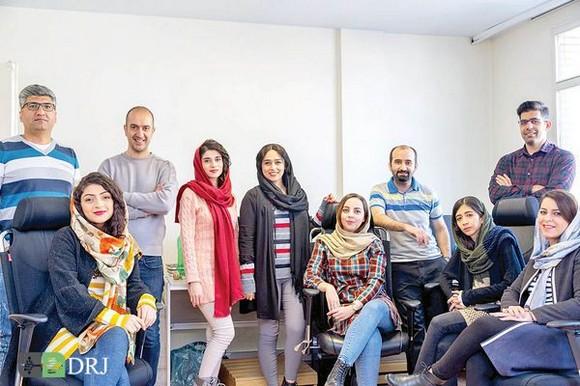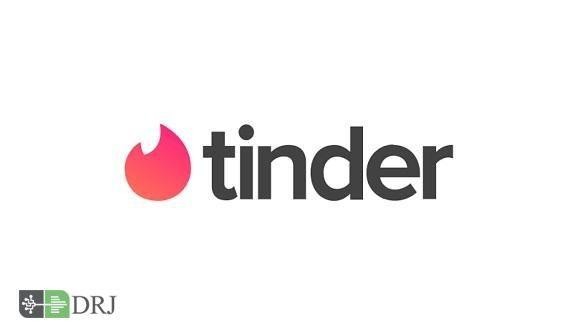Happy Monday, readers. I hope you enjoyed your weekend.
While looking out your home or office window this afternoon, did you notice that the darkness seemed to set in disturbingly early? Ok, so, par for the course as we inch toward winter and the nights get longer and colder. But part of this is very much due to human design--and a quirky little thing called Daylight Saving Time (DST).
The clocks went back one hour in (almost all) U.S. counties and states at 2 A.M. on Sunday, marking the “fall back” that signals the end of Daylight Saving. And, as a report from Kaiser Health News highlights, that brings with it a whole bunch of technical headaches for hospital systems and their electronic record keeping systems.
Modern medical innovations include the ability to transform human immune cells into cancer-destroying mercenaries. And yet, a one-hour shifting of clocks can force hospitals to temporarily switch from ostensibly newfangled (and expensive) electronic health records to old-fashioned paperwork. In fact, popularly used systems like Epic Systems’ software “can delete records or require cumbersome workarounds when clocks are set back for an hour,” according to KHN. (Epic, for its part, told the publication that, “Daylight savings time is inherently nuanced for healthcare organizations, which is why we work closely with customers to provide guidance on how to most effectively use their system to care for their patients during this time period.”)
One hour may not seem like a whole lot of time. But it can make a big difference when it comes to keeping tabs on patients’ vitals or whether or not they need scheduled medication.
Read on for the day’s news.
| Sy Mukherjee | |
| @the_sy_guy | |
| sayak.mukherjee@fortune.com |
DIGITAL HEALTH
Parsing parasites' genomes. Genome sequencing may help shed new light on how worms--the parasitic, body-invading types--do their dastardly work. Researchers from Washington University's McDonnell Genome Institute, Britain's Wellcome Sanger Institute, and Edinburgh University conducted the wide-ranging study that examined the inner biology of parasites, and how it may affect the way that worms interact with the immune system. And that, in turn, could lead to more sophisticated drug development for dealing with the invaders. (Reuters)
INDICATIONS
FDA defends controversial opioid approval. Food and Drug Administration (FDA) Commissioner Scott Gottlieb issued a lengthy statement on Friday defending the agency's approval of a powerful new opioid drug that's considerably stronger than the already-powerful fentanyl, Dsuvia from AcelRx. Of note, Gottlieb points out the drug was developed in conjunction with the Department of Defense and is targeted toward a very specific segment of the population: "I believe that the unique aspects of Dsuvia, including those that make this drug a high priority for the Pentagon, differentiate this new formulation of sufentanil from other sufentanil products in a way that is consistent with population-based considerations for how it fits into the overall drug armamentarium. The FDA has made it a high priority to make sure our soldiers have access to treatments that meet the unique needs of the battlefield, including when intravenous administration is not possible for the treatment of acute pain related to battlefield wounds." (Fortune)
Sage inches toward post-partum drug approval. Sage Therapeutics' stock did a funny thing on Monday: It sank more than 8% on news that the FDA will almost certainly approve its pioneering post-partum depression drug, the first of its kind. The reason? The small sample size of clinical trials and the therapy's risk/benefit profile could sharply limit its market potential. Case in point: The treatment's expected approval could come with a requirement that patients have to receive extensive, monitored administration of the drug over a 72 hour period. (Fortune)
THE BIG PICTURE
The problem with peer review. Aaron Carroll has a wonderful piece in the New York Times on the limits of peer reviewed medical research (a system which he still defends as the best possible choice amid a whole bunch of imperfect options). Here's one critique/suggestion for improvement that stood out to me: "For starters, more formal training might improve quality and speed. Given how hard it is to recruit good reviewers, journal editors could consider better incentives, such as paying reviewers for their time. The unpaid costs of peer review were estimated at 1.9 billion pounds (almost $3.5 billion) in 2008. Or journals could offer, without promise of acceptance, quicker turnaround for a reviewer's future papers. Academia might offer more formal recognition for review work as well." (New York Times)
REQUIRED READING
Credit Card Chips Fail to Halt Fraud, Survey Says, by Jeff John Roberts
U.S. Companies Warn Tariffs and Tax Policy Could Make for a Bad 2019, by Hallie Detrick
Two to Tango: Parsing Trump's Argentine Dinner Date with Xi, by Clay Chandler
This Startup Wants to Bring 'Common Sense' to Self-Driving Cars, by Renae Reints
[ceo_attribution author="Produced by Sy Mukherjee" email="sayak.mukherjee@fortune.com" twitter="the_sy_guy"]
Find past coverage. Sign up for other Fortune newsletters.

ایده ها برای استارت آپ موجب رونق کسب و کارهای اینترنتی
آینده / استارت آپ

استارتآپها ادبیات بازار سرمایه را بلدند؟
استارت آپ

صدور تاییدیه دانش بنیانی شتابدهنده صدر فردا
اخبار / استارت آپ

اپلیکیشن شارژاپ
گوناگون / استارت آپ / رپرتاژ آگهی / بازتاب

جذابترین ایدههای B2B در سال 2020
استارت آپ

تعریف استارت آپ startup
دانشنامه / استارت آپ / مقاله

۱۰ استارتاپ که بدون سرمایه به سوددهی رسیدند
استارت آپ

ایده ها و پیشنهاد برای استارت آپ در سال جدید
راهکارها و ترفند ها / استارت آپ

استارتآپ ایرانی؛ مرجع اول زنان افغان
استارت آپ

شروع یک کسب و کار نوپا پلتفرمی
استارت آپ

برنامه شبکه اجتماعی تیندر
گوناگون / معرفی وب سایت / استارت آپ

10 استارت آپ برتر تاکسیرانی جهان
استارت آپ

پخت پیتزاهای هیجان انگیز با هوش مصنوعی
آینده / استارت آپ

ایده های استارتاپی فراموش شده
دورنما / بازار / استارت آپ

اپل، استارتاپ فناوری خودران Drive.ai را تصاحب کرد
استارت آپ

بررسی مهمترین چالشهای تیمهای استارتاپی
استارت آپ

نگرانی کاربران از هزینه تعمیر و تامین قطعات
گفت و گو / بازار / استارت آپ

مصاحبه با مدیرعامل و بنیانگذار استارتاپ Moz
گفت و گو / استارت آپ

آشنایی با استارت آپ های حوزه مدیریت آب
استارت آپ

راه اندازی ۷۰ استارت آپ توسط نخبگان ایرانی
استارت آپ

معرفی هشت استارتآپ موفق ایرانی در حوزه فینتک
استارت آپ

اولین مرورگر شرعی دنیا
استارت آپ

از صفر تا پیست
استارت آپ

معرفی برترین استارتاپهای CES 2019
اخبار / استارت آپ

ازدواج با فرد ثروتمند یا خوش اخلاق
سبک زندگی / برترین ها

هدف از تشکیل خانواده چیست
سبک زندگی

اول عاشق شویم، بعد ازدواج کنیم
سبک زندگی

خانواده چیست
سبک زندگی

مشاوره خانواده چیست؟
سبک زندگی

اولویتهای پسانداز خانواده چیست؟
سبک زندگی

هزینه های خانواده چیست؟
سبک زندگی

راهکار بیشتر حرف زدن اعضای خانواده چیست؟
سبک زندگی

چرخه زندگی و خانواده چیست؟
سبک زندگی

اهداف و اصول تشکیل خانواده
سبک زندگی

آموزش جنسی نادرست به سبک خانم جلسه ای
سبک زندگی

لطفا تماشاچی آزار زنان نباشید!
سبک زندگی

کودک آزاری؛ از نشانهها و دلایل تا درمان
گزارش / سبک زندگی / پرورش کودکان

روش های تعیین هدف و مسیر زندگی برای رسیدن به موفقیت
سبک زندگی
مجله اینترنتی دیپروتد نشریه مجازی بر بستر اینترنت به مسائل آموزشی و مقالات پیرامون کسب وکار های نوپا یا استارت آپ ها و سبک زندگی است فعالیت و محتوای مطالب ارائه شده در سایت همه بیشتر در حوزه مدیریت، کارآفرینی ، روانشناسی ،اقتصادی و فناوری اطلاعات است نام اصلی دیپروتد "ریشه های عمیق " با مجوز رسمی از هیات نظارت برمطبوعات مشغول به فعالیت است
ما را در شبکه های اجتماعی دنبال کنید
تمامی حقوق برای سایت فوق محفوط است.
S-TECH: ایرانی توانمند | Powered by: مجله اینترنتی دیپروتد










